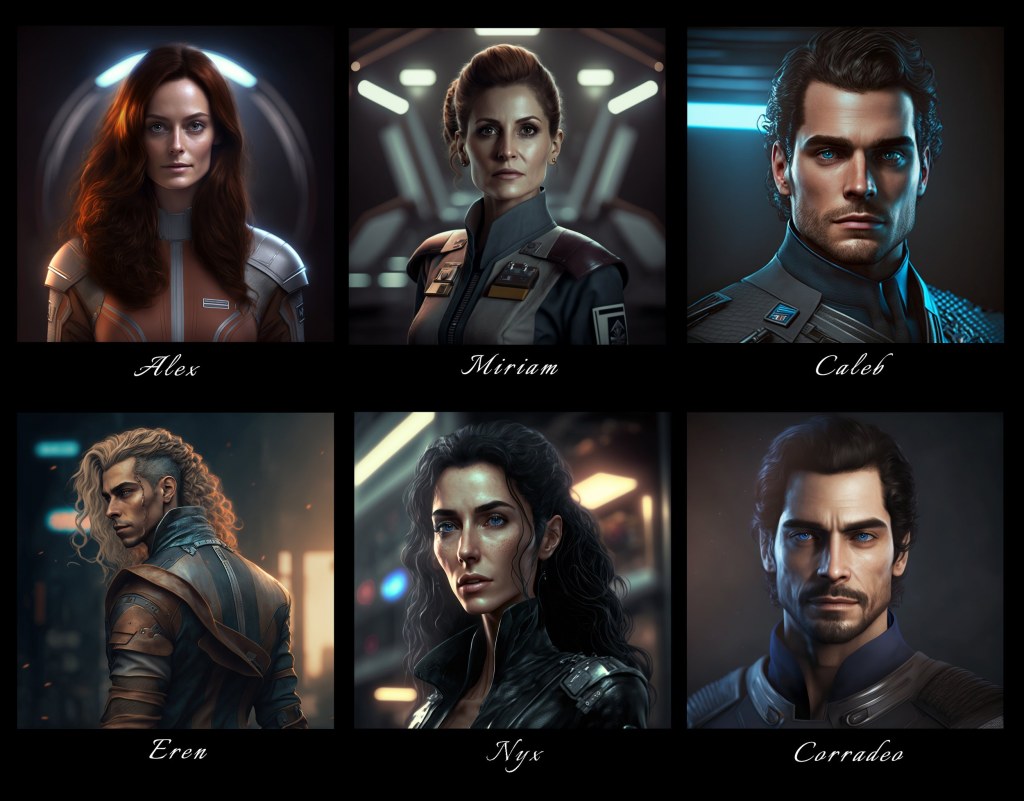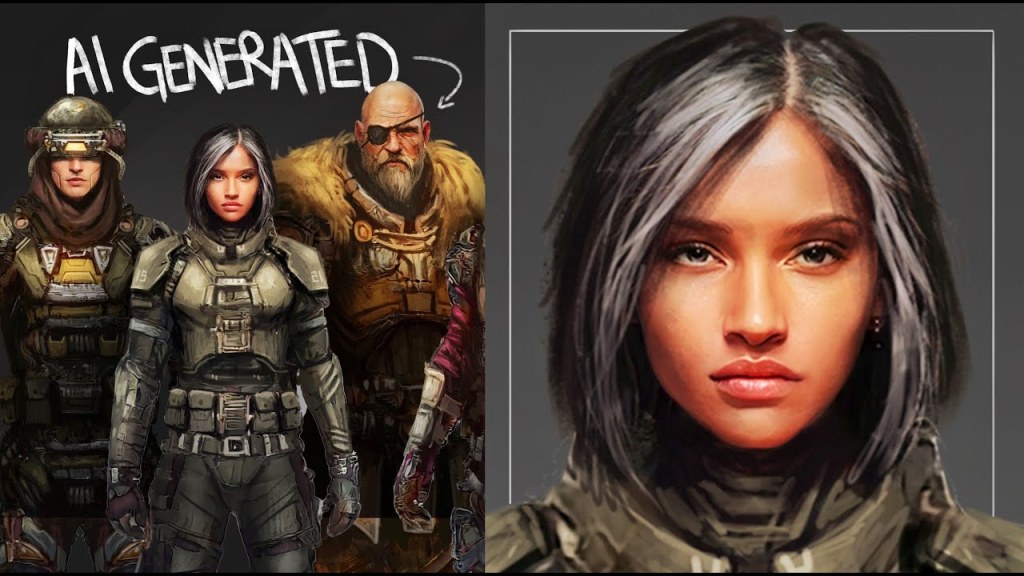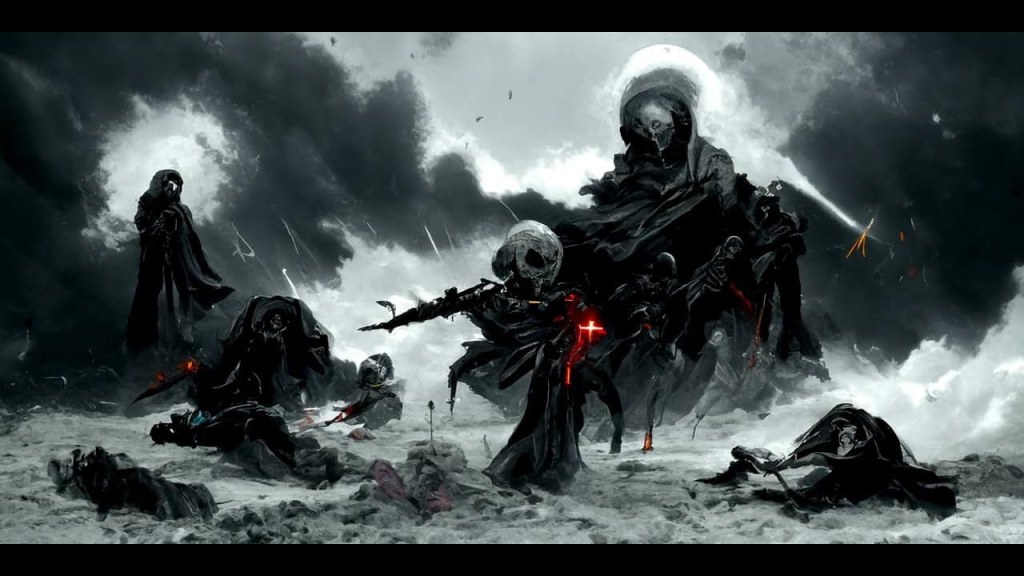AI for Concept Art
Hello Art Enthusiast!
Welcome to our article on AI for concept art. In this digital age, technology has made tremendous advancements in various fields, including art. Artificial Intelligence (AI) is revolutionizing the art industry, particularly in the realm of concept art. Artists and designers are now leveraging AI to enhance their creative process and bring their imagination to life. In this article, we will explore the concept of AI for concept art, its advantages and disadvantages, and how it is transforming the art landscape.
Table of Contents
Introduction
What is AI for Concept Art?
Who Uses AI for Concept Art?
When to Use AI for Concept Art?
Where is AI for Concept Art Applied?
Why is AI for Concept Art Important?
How Does AI Enhance Concept Art?
Advantages of AI for Concept Art
Disadvantages of AI for Concept Art
FAQs
Conclusion
Final Remarks
What is AI for Concept Art?

Image Source: squarespace-cdn.com
AI for concept art refers to the use of artificial intelligence technologies, such as machine learning and deep learning algorithms, to assist artists and designers in creating and refining their conceptual artwork. It involves the application of AI-driven tools and software that can generate or enhance various elements of concept art, including character designs, landscapes, props, and more.
How Does AI for Concept Art Work?
AI for concept art works by training algorithms on vast amounts of existing artwork, allowing the AI to learn and mimic the style, techniques, and aesthetics of different artists. This training enables AI-powered tools to generate new artwork based on the learned patterns and produce outputs that align with the artist’s vision. The AI algorithms can also provide recommendations and suggestions to enhance the artist’s creative process.
Who Uses AI for Concept Art?

Image Source: ytimg.com
AI for concept art is utilized by a wide range of professionals in the art and design industry. This includes concept artists, illustrators, game developers, animators, and graphic designers. These individuals leverage AI tools to streamline their workflow, explore new creative possibilities, and expedite the concept art creation process.
When to Use AI for Concept Art?
AI for concept art can be used throughout the entire creative process, from the initial brainstorming and ideation phase to the final rendering and polish. Artists can employ AI tools to generate inspiration, explore different design iterations, and receive real-time feedback on their artwork. The use of AI for concept art is particularly beneficial when working on large-scale projects with tight deadlines.
Where is AI for Concept Art Applied?

Image Source: ytimg.com
AI for concept art finds applications in various industries, such as entertainment (movies, video games, animations), advertising, product design, and architecture. It is used to create visually stunning and captivating artwork that captures the essence of the intended concept or narrative.
Why is AI for Concept Art Important?
AI for concept art plays a crucial role in empowering artists and designers by enhancing their creative capabilities. It allows them to explore new artistic styles, iterate rapidly, and push the boundaries of their imagination. AI tools can save time and effort, enabling artists to focus on ideation and storytelling rather than spending hours on repetitive or mundane tasks.
How Does AI Enhance Concept Art?
AI enhances concept art through various techniques and tools. Some AI-powered tools can generate realistic landscapes, characters, or objects based on high-level descriptions or rough sketches provided by the artist. Others can assist in color grading, lighting, or composition suggestions to improve the overall visual impact of the artwork. AI algorithms can also analyze existing artwork and provide valuable insights for artists to refine their designs.
Advantages of AI for Concept Art
1. Increased Efficiency: AI tools can automate certain aspects of the concept art creation process, saving artists significant time and effort.
2. Inspiration and Exploration: AI can generate diverse visual concepts and suggestions, providing artists with new avenues for creative exploration.
3. Iteration and Feedback: AI algorithms can rapidly generate multiple iterations of a design and provide real-time feedback, aiding artists in refining their artwork.
4. Consistency and Cohesion: AI can ensure consistency in art style and design elements, especially in large projects or collaborations.
5. Time-Saving: AI tools can assist in generating complex or repetitive elements, freeing up artists to focus on more unique and imaginative aspects of their artwork.
Disadvantages of AI for Concept Art
1. Lack of Originality: AI-generated artwork may lack the unique human touch and creativity that traditional handcrafted art possesses.
2. Overreliance on Technology: Excessive reliance on AI tools may hinder an artist’s own creative growth and exploration.
3. Learning Curve: Artists need to invest time and effort in learning and adapting to AI tools, which may initially slow down their workflow.
4. Expensive Software: High-quality AI tools for concept art creation can be costly, limiting access for some artists.
5. Ethical Concerns: The use of AI in art raises questions about authorship, originality, and the impact on traditional art practices.
FAQs
1. Can AI completely replace human concept artists?
No, AI cannot completely replace human concept artists. While AI tools can assist and enhance the creative process, the human touch, imagination, and storytelling abilities of artists are unique and irreplaceable.
2. Are AI-generated concept art pieces considered original works?
The originality of AI-generated concept art pieces is a subject of debate. While AI tools can generate artwork, they lack the intent and emotions associated with human artistic expression. Thus, the question of authorship and originality becomes more complex in the context of AI-generated art.
3. How can AI tools benefit the concept art industry as a whole?
AI tools can benefit the concept art industry by empowering artists, streamlining workflows, and pushing the boundaries of creativity. They can save time, offer new perspectives, and expedite the concept-to-creation process, leading to more efficient and visually captivating artwork.
4. Is AI for concept art accessible to artists with limited technical skills?
While some AI tools for concept art require technical knowledge to operate, there are user-friendly options available that cater to artists with limited technical skills. These tools prioritize ease of use and aim to provide accessible solutions for artists of all proficiency levels.
5. What is the future of AI for concept art?
The future of AI for concept art holds great potential. As AI algorithms continue to improve, we can expect more advanced tools that seamlessly integrate with an artist’s workflow. This will enable artists to push the boundaries of their creativity and produce artwork that captivates audiences in new and exciting ways.
Conclusion
In conclusion, AI for concept art is transforming the way artists and designers create and refine their artwork. By leveraging AI-powered tools, artists can streamline their workflow, explore new creative possibilities, and enhance their artistic capabilities. While AI offers numerous advantages, it is essential to strike a balance between technology and human creativity. The future holds immense potential for AI in concept art, and artists should embrace these advancements to push the boundaries of their imagination.
Final Remarks
In the rapidly evolving art industry, AI for concept art is an invaluable tool that revolutionizes the creative process. However, it is important to recognize that AI is a tool and not a substitute for human creativity. Artists should continue to nurture their skills, seek inspiration from various sources, and use AI as a powerful ally in their artistic journey. Let us embrace the potential of AI for concept art while staying true to the essence of human expression and imagination.